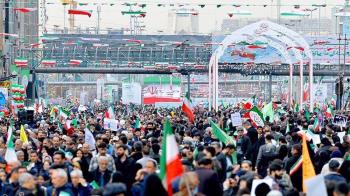Alwaght - The coalition of Ashraf Ghani and Dr. Abdullah to form an Afghan unity government has created a new paradigm of opposition and internal factions in the country. Some governmental organizations and supporters of Abdullah movement had traditionally formed an opposition; however, Hamid Karzai and his allies have gradually been attracting all the opposition groups.
Abdullah Abdullah , the head of National Coalition of Afghanistan, according to an agreement credible for two years, was appointed as Chief Executive Officer. However, he has lost his supporters as he has failed to meet their expectations. Some of them included Yunus Qanuni, Atta Mohammad Noor, Professor Sayyaf, and Besmellah Khan Mohammadi, the Former Minister of Interior.
The Afghan Northern Alliance, officially known as the United Islamic Front for the Salvation of Afghanistan together with Ashraf Ghani have lost their supporters, too. Ahmad Zia Massoud, Sibghatullah Mojaddedi, Gilani and some other supporters of this movement have split away from the president. However, the pro-Ashraf Ghani movement is more coherently pursuing its goals.
Ashraf Ghani's positive approach to Pakistan, which culminated in signing a security agreement, was one of the main causes of the conflict between the incumbent President Ashraf Ghani and the former President Hamid Karzai to the extent that there were intense speculations about serious differences and growing split between the two.
Expressing his opposition to Ashraf Ghani, Hamid Karzai currently is more motivated to participate in the political scene. On the other hand, as the savior of Afghanistan, he tries to attract the whole spectrum of the political movements. Some supporters of Abdullah, as noted earlier, were inclined to Karzai and now they are collaborating to support him in the future political events.
Although Hamid Karzai has never publicly claimed to oppose the government, he is now trying to achieve an undisputed political and national status beyond political rivalries. However, he is trying to seize the opportunity and form a strong opposition to gain an advantage in the upcoming elections. In short, as the savior of Afghanistan, Karzai once again is making attempts to provide the conditions for his return to power.
On the other hand, the Taliban, apparently lacking the democratic power, has adopted a dual strategy and is restoring its leading position in Afghanistan. Taliban, as government has admitted, is currently ruling over the key areas of Afghanistan and now is particularly active in two fronts, i.e. gaining power and a leading position in Afghanistan and wining the political-democratic legitimacy in the region and at the international level. Resorting to activities of terrorist nature, such as planting bombs near the parliament, Taliban tries to remind Afghan movements of its domination; on the other hand, it is holding talks and negotiations, mostly in European countries to depict itself as a democratic movement.
These two strategies, together with public support of some cities and provinces in southern and eastern Afghanistan are likely to give rise to a powerful opposition that can win a superior position in the power structure of Afghanistan. The number of Afghan politicians who welcomed the democratic return of the Taliban proves the effectiveness of the Taliban's strategies. Efforts to hold informal national dialogues show that Afghan politicians have welcomed the presence of the Taliban.
Besides, the approach of Pakistan and its army for using the Taliban as a bargaining chip in this country justifies some equations. According to a security agreement, Pakistani military was committed to take necessary measures to reduce the presence of the Taliban. However, Pakistan not only failed to fulfill any of its promises but also has directed many terrorists from its soil to Afghanistan.
The Pakistani army, competing for a stronger role in the region, is trying to make better use of Afghanistan. Therefore, Pakistan gives supports to the Taliban militants as they can place pressure on Afghan government they can also serve as a potential rival to the ruling power.
With regard to the upcoming parliamentary election (in September), domestic security-economic issues, and. deep split between political movements long term stability for national unity government in Afghanistan is not expected. However, in the Afghan government, Abdullah Abdullah has suffered from disadvantages rather than benefiting any of the virtues of his position. Therefore, if this movement and the ruling government fail and another round of election is held, Abdullah will not win his former position. As a result, Karzai movement, leading the opposition, can pave the way for returning Karzai to power.


























